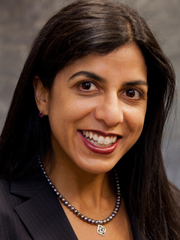ECS 253 / MAE 253, Spring 2018
Network Theory and Applications
| Lectures: | Tues & Thurs 12:10-1:30pm, 1062 Bainer | |
| Instructor : | Prof. Raissa D’Souza | |
| Email: profdsouza at gmail.com (You must use this email address) |
||
| Office: 3057 Kemper Hall | ||
| Office Hours: TBD | ||
| Lead TA: | Anastasiya Salova, avsalova at ucdavis.edu | Office hours, Kemper 3106: Monday 11-12, Tuesday 3-4, Wednesday 2-3 in Kemper 3106 |
| Postdotoral co-instructors: | ||
| Marton Posfai, posfaim at gmail.com | Office hours: By appt. | |
| Keith Burghardt, kaburghardt at ucdavis.edu | Office hours: By appt. | |
| Martin Rohden, mrohden at ucdavis.edu | Office hours: By appt. | |
| Weiran Cai, wrcai at ucdavis.edu | Office hours: By appt. | |
| Teaching Assistants: | ||
| Haochen Wu, hcwu at ucdavis.edu | Office hour: TBD. | |
| Jordan Snyder jasnyder at math.ucdavis.edu | Office hour: TBD. | |
Overview:
Network structures are pervasive in the world
around us, from the Internet and the power grid, to social acquaintance networks,
to biological networks. This course is intended for graduate students interested in
learning about modern perspectives on networks, and should allow students to incorporate
network theory into their own research. This course will cover General Techniques and Selected Applications. Applications will reflect student
interest, thus the later material comprising the course content is still TBD.
Prerequisites:
Familiarity with: linear algebra, basic statistics, calculus, ordinary
differential equations, using computer software.
Course structure: (1) Lectures, (2) bi-weekly problem sets/paper reviews and (3) a class project or deeper HW assignments.
- Topics: This course assumes no prior knowledge of networks. We will begin with basic concepts about networks and the mathematical tools for their analysis, developing key metrics for characterizing the structure of a network. We will then examine several models of network growth (random graphs, preferential attachment, small-worlds). Emphasis will then shift to network function and algorithms, such as the Page Rank algorithm for ranking web pages, and also decentralized search and routing in social and information networks. The next topics to be covered will reflect student interest.
- Paper reviews: For these assignments, you are required to provide a short summary (one or two paragraphs) and a review of the strengths and weaknesses of the paper. The goal of these reviews is to help you synthetise the main ideas and concepts presented in each paper. Note, not all students will review the same papers. Based on your interests, you will choose the papers.
- Project: Students work in small groups on a course project. The projects will complement and extend the lecture material. The project may include simulation and modeling, network visualization, creating software for network analysis, or analysis of a real-world network (such as a transportation, social, biological or ecological network). We will be posting a list of potential project topics.
Resources:
There will be no required text for this course. The content will largely come from articles and class notes.
Important References. The class will draw from:
Basics of networks
- Networks: An Introduction, by M. E. J. Newman, Oxford University Press, 2010.
- The Structure and Function of Complex Networks, by
M. E. J. Newman, SIAM Review 45 (2), 167-256, 2003. - Network Science Book, by A.-L. Barabasi (with M. Martino and M. Posfai).
Dynamical processes on networks
- Dynamical Processes on Complex Networks, Barrat, Barthelemy, Vespignani, Cambridge Univesity Press, 2008.
- Dynamical Systems on Networks: A Tutorial, M. Porter and J. Gleeson, arxiv 2014.
Probability and random graphs
- Random Graph Dynamics, by Rick Durrett, Cambridge Univesity Press, 2007.
- Hofstad’s course: Random Graphs and Complex Networks
pdf notes at: http://www.win.tue.nl/~rhofstad/NotesRGCN2013.pdf
Social and Economic networks
- Social and Economic Networks, Matthew Jackson, Princeton University Press, 2008.
- Networks, Crowds, and Markets: Reasoning About a Highly Connected World, D. Easley, J. Kleinberg, Cambridge University Press, 2010.
Related UCD classes:
Related classes elsewhere:
- Univ of Michigan, Mark Newman, Complex Systems 535, Fall 2017
- Northeastern, Laszlo Barabasi’s course, Fall 2015
- Stanford, Matthew Jackson’s course
- Matthew Jackson’s Books, MOOCs, etc
- Univ of Michigan, Lada Adamic, Intro to networks, Fall 2009
- Cornell, Networks Journal Club
- U Nevada at Reno, CS 765, Spring 2013
- Hofstad’s course: Random Graphs and Complex Networks, 2013
- Numerous Coursera classes
- Instructor: Raissa D’Souza





